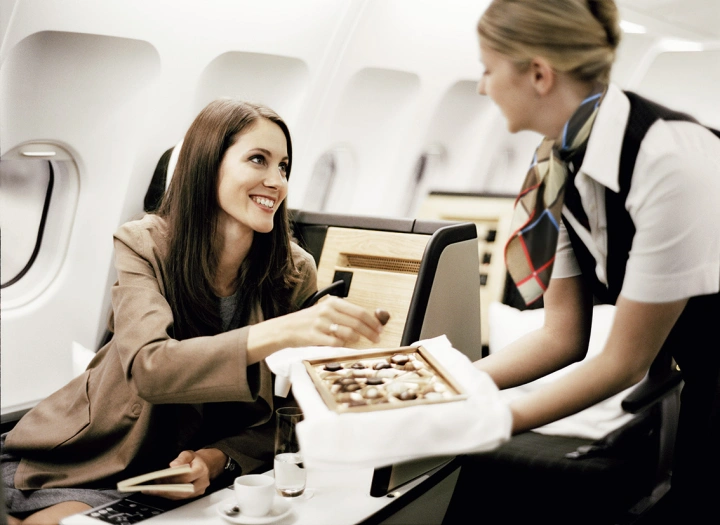Access selected deals available with budget and full-service airlines
Lock any airfare that sounds great. You don’t lose anything if you cancel it
Call us anytime for any assistance. We do not go into hibernation
Your personal and financial information stays secure with us
Swiss International Air Lines AG (SWISS), stylized as SWISS, is Switzerland’s flag carrier, renowned for embodying the country’s values of precision, quality, and hospitality. Headquartered at EuroAirport Basel Mulhouse Freiburg near Basel, Switzerland, with a key office at Zurich Airport, SWISS operates from its primary hub in Zurich (ZRH) and secondary hub in Geneva (GVA). As a member of the Lufthansa Group and the Star Alliance, SWISS serves over 100 destinations in more than 40 countries, carrying approximately 18 million passengers annually. With one of Europe’s most advanced fleets, a commitment to sustainability, and premium inflight services, SWISS delivers a high-quality travel experience, though it faces challenges with cancellations, customer service, and baggage handling.

SWISS was established following the 2002 bankruptcy of Swissair, Switzerland’s former flag carrier, which struggled after its failed “Hunter Strategy” led to losses of CHF 1.8 billion in 2001 alone. Swissair’s regional subsidiary, Crossair, which derived 40% of its income from Swissair, became the foundation for SWISS. Crossair, part of the SAirGroup holding company, was restructured, with Swissair’s assets sold to it by creditors Credit Suisse and UBS. On March 31, 2002, SWISS officially launched, retaining Crossair’s IATA code (LX) and adopting Swissair’s ICAO code (SWR) to maintain international traffic rights. Initially owned by institutional investors (61.3%), the Swiss Confederation (20.3%), cantons and communities (12.2%), and others (6.2%), SWISS faced losses of $1.6 billion from 2002 to 2005.
In 2005, Lufthansa Group acquired SWISS, integrating it into its portfolio and the Star Alliance, the world’s largest airline network, enhancing global connectivity. SWISS halved its losses annually, achieving a $220 million profit in 2006 and $570 million in 2007, as noted by Marcel Biedermann, managing director of intercontinental markets, who described the Lufthansa partnership as a “natural” fit. In 2004, SWISS declined to join the Oneworld alliance due to concerns over integrating its frequent flyer program with British Airways’ Executive Club and a perceived lack of mutual benefits.
Significant milestones include becoming the launch customer for the Airbus A220 (formerly Bombardier CSeries) in 2016 and introducing Boeing 777-300ERs with updated cabins in 2016. In 2023, SWISS unveiled “SWISS Senses,” a new inflight experience with premium suites and enhanced interiors, set to roll out in 2025. By 2025, SWISS faced operational challenges, canceling 1,400 flights from April to October due to a global pilot shortage, impacting routes and drawing public criticism.
SWISS operates a fleet of 91 aircraft, one of Europe’s most modern, comprising Airbus A220-100/300, A320ceo/neo, A321ceo/neo, A330-300, A340-300, and Boeing 777-300ER models, with an average age of 8.7 years. The Boeing 777-300ER, introduced in 2016, features eight First Class suites with 32-inch TVs, 62 Business Class flat-bed seats, and 270 Economy seats in a 3-4-3 layout, matching the seat pitch of A330s and A340s. The Airbus A220, launched in 2016, enhances fuel efficiency, while A320 and A321 fleets were refurbished with new interiors, with older models replaced by A320/A321neos. In December 2024, SWISS ordered five additional Airbus A350-900s, complementing five already on order, with deliveries planned from 2025 to 2031, further reducing emissions.
SWISS’s sustainability strategy targets a 50% reduction in 2019 net CO2 emissions by 2030 and carbon neutrality by 2050, emphasizing sustainable aviation fuel (SAF) and operational efficiencies like single-engine taxiing. The airline’s Swiss WorldCargo division provides eco-friendly airfreight services for high-value, time-critical consignments.